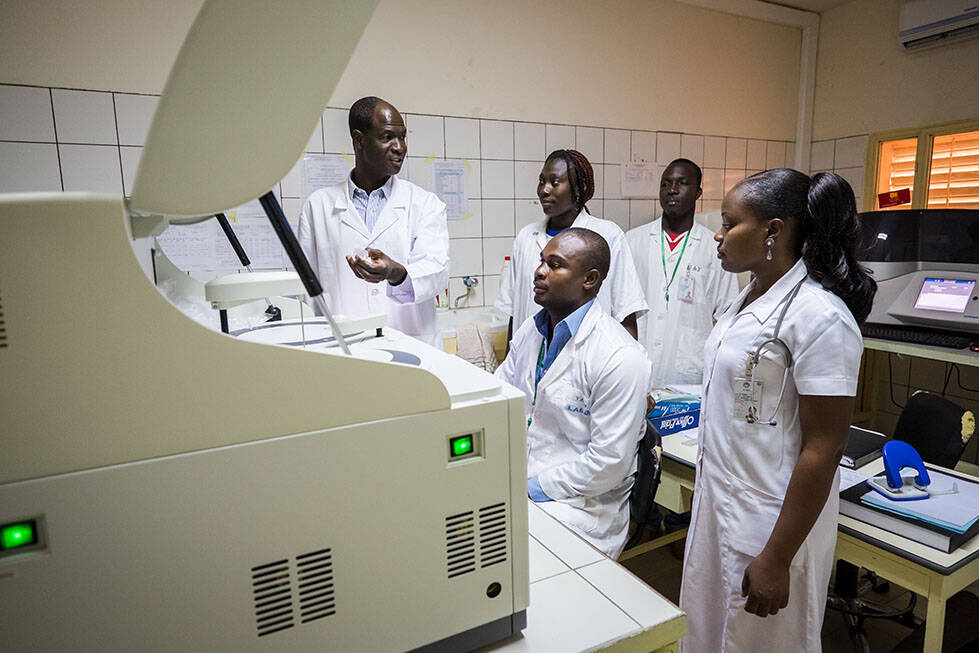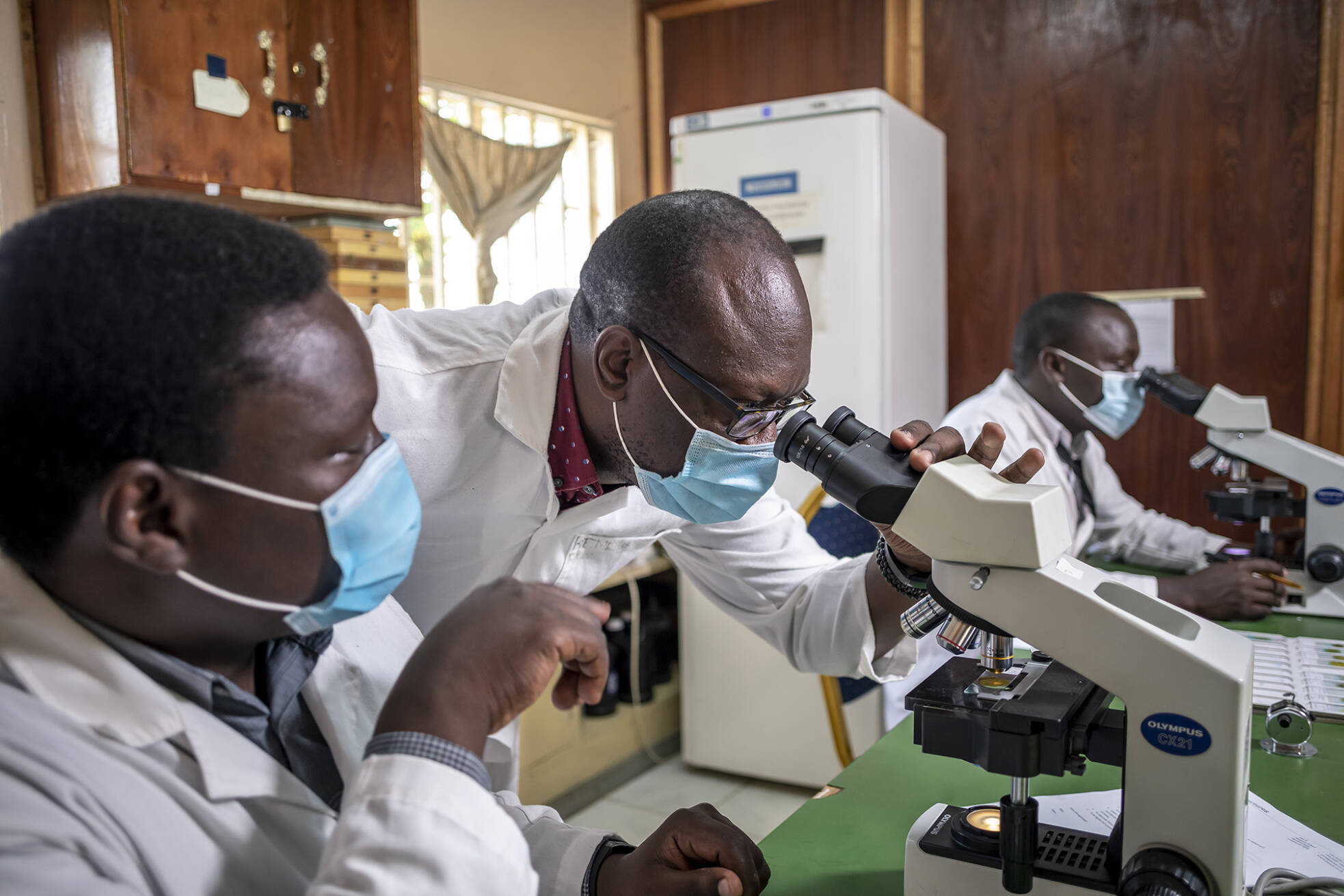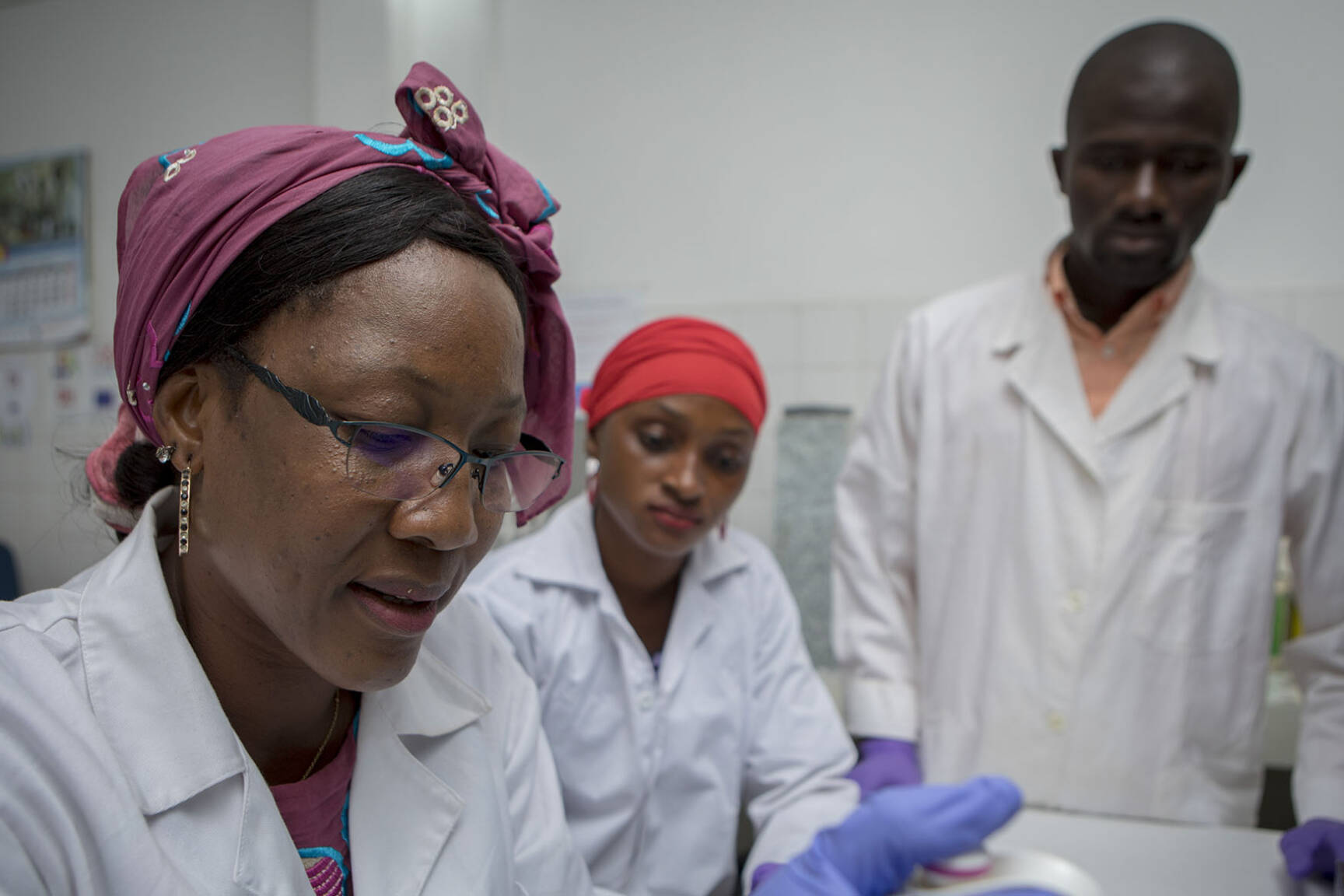

In malaria, Dr Richard Mwaiswelo has shown that a single low dose of primaquine is safe and can reduce transmission of malaria parasites even in individuals with genetic variants that affect its metabolism and bioavailability. Unlike most malaria treatments, primaquine acts on gametocytes, the parasite stage taken up by mosquitoes, so its use as a supplement to artemisinin-based therapies is recommended for the elimination of malaria in low-transmission settings.
However, primaquine is a pro-drug that is metabolised into its active form in the body by cytochrome P450 (CYP) enzymes. Genetic variants that reduce primaquine processing activity are common in sub-Saharan Africa, particularly CYP2D6. Even so, lower levels of primaquine may still reduce transmission by sterilising rather than killing gametocytes. Using mosquito feeding assays, Dr Mwaiswelo showed that parasite survival and infectiousness was not dependent on CYP2D6 status. No safety issues were identified for any CYP2D6 variant or in individuals with G6PD deficiency, another genetic variation common in Africa.
In TB, Dr Sean Wasserman has generated important data on the safety of linezolid, commonly used to treat drug-resistant TB. Although effective at killing mycobacterial cells, linezolid also interferes with host cell metabolism, which can lead to nerve damage and other side effects that can mean treatment has to be stopped.
To gather additional data on a sub-Saharan African population, Dr Wasserman followed a cohort of more than 150 TB patients, 61% of whom were HIV-positive. Linezolid was discontinued in 21% of patients due to toxicity but toxicity was not associated with HIV status. Modelling suggested that a minimum concentration on 2.5 mg/L should be used for therapeutic monitoring of patients receiving linezolid.
There are suggestions that mass drug administration with praziquantel to control schistosome transmission may provide additional health benefits. To explore the possible basis for this, Dr Justin Komguep Nono has assessed the impact of repeated treatment cycles in a mouse model of schistosome infection. Although animals with the highest numbers of treatment cycles remained susceptible to infection, they had a lower egg burden and showed elevated levels of protective immune responses.
In addition, Dr Nono has found that, in both mice and children, chronic schistosome infections lead to impaired responses to vaccination. This effect was associated with the death of immune cells in bone marrow, which could be halted by removal of parasites by treatment with praziquantel, leading to some restoration of vaccine-induced immune responses. The findings highlight a mechanism whereby schistosome infections can reduce responses to vaccination, strengthening the case for strategies to reduce the disease burden in children before vaccination.
Dr Clifford Banda has been exploring the potential impact of interactions between treatments for HIV/AIDS and malaria, particularly in pregnant women. Malaria infection in pregnancy is associated with a range of health issues, which are exacerbated by HIV infection. Prevention of malaria in pregnancy is therefore a high priority.
Antimalarial drugs are given to pregnant women to prevent infection. However, many women in sub-Saharan Africa are also living with HIV, and there are concerns that antimalarial drugs could affect the metabolic processing of antiretroviral drugs, or vice versa, rendering them less effective.
In pharmacokinetic studies, Dr Banda has assessed the impact of a potential antimalarial for preventive use in pregnancy, dihydroartemisinin–piperaquine (DP), on levels of the antiretroviral dolutegravir, and how dolutegravir-based regimens affect DP levels. DP was found to slightly increase dolutegravir levels, but no safety issues were identified. Similarly, use of dolutegravir-based regimens led to greater persistence of DP but no increase in its maximum concentration. The findings suggest that the two treatments can be used together safely in pregnant women.
Dr Caroline Chisenga has been exploring factors that could potentially affect responses to oral cholera vaccine (OCV) in the Lukanga Swamps area of Zambia. Although OCV was immunogenic in people living with HIV, responses were lower in people with HIV infections, particularly those with low CD4 counts and high viral load. However, serum retinol levels, a marker of poor nutrition, were not associated with reduced responses to vaccine. Although ABO blood group has been identified as a possible influence on vaccine responses, no significant differences were seen in responses across blood types in this population.
Four-year follow up revealed that bactericidal antibody levels fell rapidly within the first year following vaccination, and hence may not be a good marker of long-term immunity. Antibody levels began to rise again at three years, possibly because of natural infection, suggesting a possible need for revaccination in high-risk areas.
scroll down
Career Development Fellows have shown outstanding promise in their early research careers and are ready to make the transition to independent researchers. EDCTP fellowships provide funding for their research at this critical stage of their research career, setting them up for future success.
In 2022, EDCTP Career Development Fellows have contributed key findings on malaria treatments, cholera vaccines and the impact of schistosome infections.

Career Development Fellows in 2022
